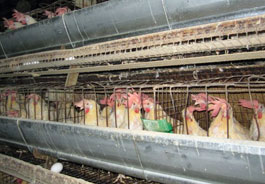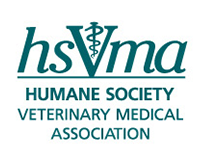Veterinary Leadership Needed for Washington Ballot Initiative 1130June 6, 2011 by Brad Evergreen, DVM  An estimated 6 million egg-laying hens live in stacked, cramped cages on Washington farms. The HSUS As a practicing small animal veterinarian who typically treats three animals per hour, it’s not every day that an opportunity comes my way to help substantially improve the quality of life for 6 million animals at one time. So, when the Washington State’s citizen initiative I-1130 came to my attention, I was excited that I would be able to vote as a Washington citizen and say “Yes on I-1130" during the November election. This initiative, simple and modest in nature, would prohibit confining the estimated 6 million egg-laying hens on Washington farms in stacked, cramped cages and would instead require that the birds be housed so that they can freely stand up, lie down and turn around fully to extend their wings. I think back on all the patients who I see that are suffering likely due to environmental conditions. In dogs, for example, I often see behavioral and medical problems related to environment such as anxiety, stereotypic behavior, obsessive compulsive disorders, aggression, lick granulomas, fight wounds, parasites and other harmful conditions. In these situations, we work with the clients to address the environmental issues and improve quality of life. I cannot imagine how I would deal with the situation, however, if any of my clients said that they kept their pet, no matter how small, confined to a space smaller than a sheet of paper for their entire life, or if the animal never had the space to even stretch their limbs. Also disturbing is that laying hens often endure this restriction with several other hens in the same cage. Leadership in animal welfareAs a veterinarian, I have a unique opportunity to take my support one step further than a lay person. I can not only vote “Yes on I-1130” as a Washington citizen, but I can also endorse the initiative as a veterinarian, demonstrating my leadership in animal welfare as a healthcare professional. Many studies and polls demonstrate that our clients view veterinarians as the most trusted resource in animal welfare, so it only seems fitting that a veterinarian would want to endorse I-1130 since our clients will be looking to us for guidance on this issue. In fact, many Washington veterinarians have already joined me in publicly endorsing the measure. There are numerous reasons to endorse this initiative, and I would hope that fellow Washington veterinarians would review the sound science behind the measure and join your colleagues in endorsing. Besides providing a better quality of life for laying hens, I-1130 will decrease the risk of food safety to the public by decreasing the threats of Salmonella in our community food chain, which is why the Center for Food Safety has endorsed I-1130. The changes proposed by the measure will also support Washington family farms by not allowing corporate large-scale farms to increase profits with confinement operations that out-compete smaller farms that raise their livestock in more traditional methods. The measure would not negatively impact consumers, since studies have shown that the change in housing would only increase producer costs by about a penny per egg. Finally, it would appear silly if most humane societies in Washington, more than 80 family farms, national groups such as The Humane Society of the United States and the ASPCA, the Washington Federation of Animal Care &Control Agencies, and the Center for Science in the Public Interest could endorse this initiative, but the mostly highly trusted animal advocates—veterinarians—didn’t take an active interest in this issue and support the measure. For more information about the animal welfare science and food safety benefits of I-1130, as well as how you as a veterinarian can endorse Initiative 1130, please visit YESon1130.com and show your support of this issue.  Brad Evergreen, DVM Special Note for Oregon Veterinarians: The same opportunity also exists for Oregon veterinarians to show their leadership on animal welfare with the recent introduction of a similar ballot measure to improve living conditions for egg-laying hens in that state. For more information on the Oregon initiative, please visit HumaneOR.com. Dr. Evergreen is a small animal practitioner who owns and operates Evergreen Holistic Veterinary Care in Monroe, Washington. He is a member of the HSVMA Leadership Council and one of the first veterinary endorsers of the I-1130 ballot initiative. |
